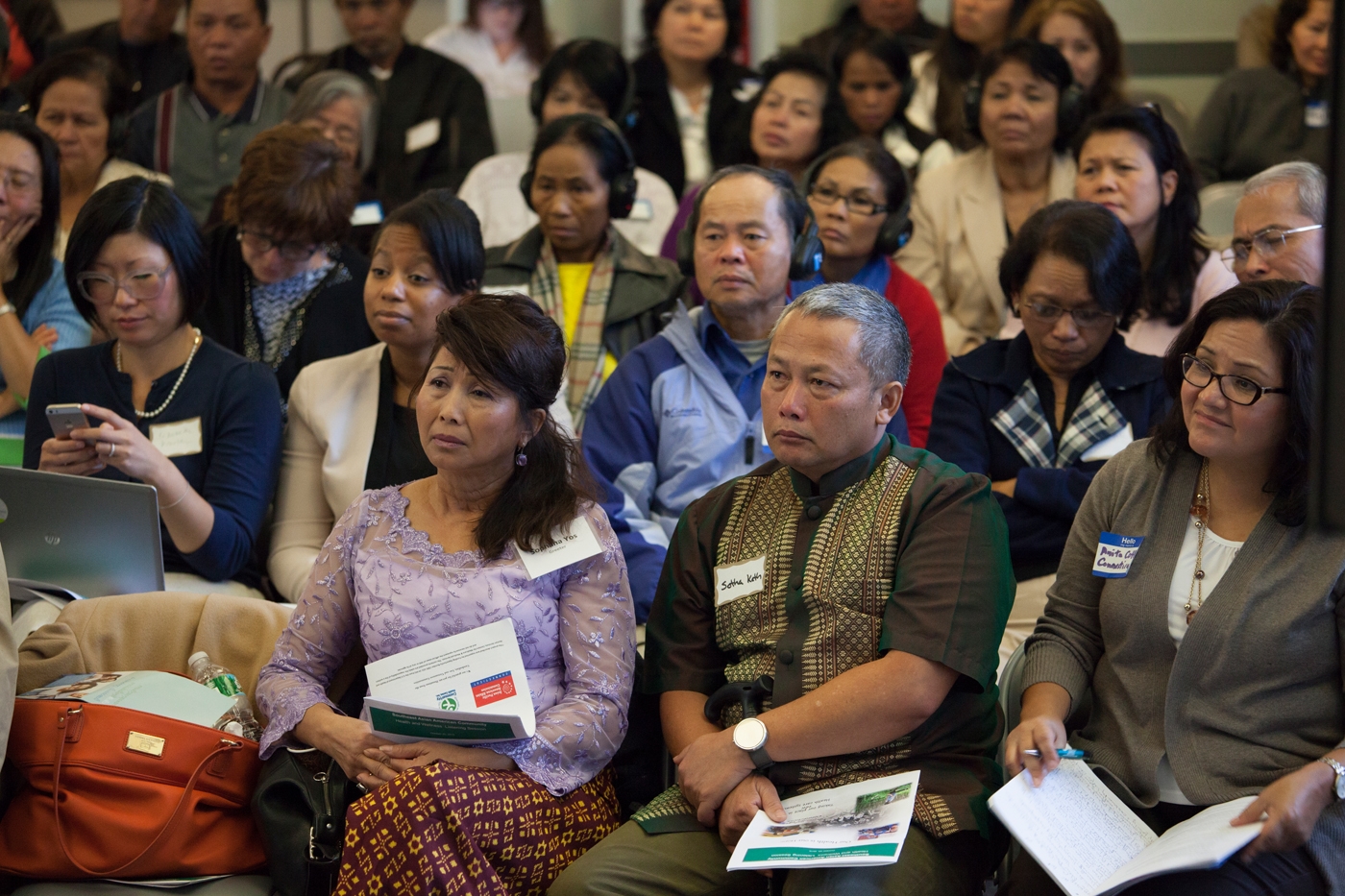After a genocide where over 1.7 million people died at the hands of the Khmer Rouge, Cambodian refugees to the United States were left with deep trauma and torture-related health conditions. One asylum recipient who had nearly died due to starvation and forced work, Theanvy Kuoch, took it upon herself to ensure the growing community of survivors had a place to seek care upon arrival in America—including the community of Connecticut-based Cambodians that now numbers 3,800. In 1982 Kuoch founded Khmer Health Advocates (KHA), which has served thousands of Cambodians in the Connecticut area and beyond.
Kuoch was a young mother when the Khmer Rouge took Phnom Penh in 1975. In an interview with East-West Center Young Professional Meghan Murphy, she described being forced to leave the city to relocate to agrarian work camps with 19 family members[MO1] —only three of whom would survive. Five years later, Kuoch escaped the Khmer Rouge alone by foot to a refugee camp in Thailand, dodging gunshots and landmines. While in the camp, Kuoch trained to be a nurse in a German Catholic Relief Organization hospital—an experience she said “made her feel like a human being again.” In 1981, having had to leave her surviving son in Cambodia, Kuoch immigrated to the United States alone.
When Kuoch arrived in the United States, she felt like an “alien”: out of place in a drastically different culture, while also mourning the brutal deaths of her family members. However, she recalled how working as a nurse had grounded her in a period of extreme duress. Kuoch reached out to Mary Scully—a nurse from Connecticut who she met in the Thai refugee camps. Kuoch joined her in West Hartford and, a year later, Khmer Health Advocates was born.
The non-profit provides services to refugees and their families that treat the “whole body, spirit, and mind.” The core of the organization is training and supporting the work of community health workers who go door to door to provide people with direct care. These frontline health workers listen to survivors’ stories and work to rebuild the trust between people that was lost during the genocide. Psychiatrists at KHA spearheaded torture treatment programs that have supported 1,700 Cambodian Americans who are primary or secondary torture victims. Advocates at KHA are also working to understand how trauma causes diabetes, substance abuse, and other health problems within the diaspora.

Members of the Cambodian diaspora in Connecticut alongside other refugee and minority community members [Image: Khmer Health Advocates]
In the 1980s, Khmer Health Advocates created a family reunification program to rejoin relatives who had been separated in the chaos and violence of the Khmer Rouge regime, the ensuing war with Vietnam, and distant relocations. The program started modestly—Koch sent out the names of lost family members in a typewritten newsletter and scanned phonebooks from every state. Today, KHA has found and reunited 30 people with their families. This includes Kuoch’s son, who finally joined her in the United States in 1990 with help from the White House. For all her work with KHA, President George Bush awarded Theanvy Kuoch with a Points of Light award and the state of Connecticut awarded her an Outstanding Woman Award.
When asked what federal and state governments can do to better support refugee communities, Kuoch stressed that education about the cultural needs of the Cambodian and other diaspora communities is crucial to achieving impactful care. For example, American practices of over-medication often fail to address the psychosocial needs of refugees. Kuoch also highlighted how a rise in Asian American hate crimes—including racist calls to the KHA office—and the threat of deportation for non-citizen Cambodian refugees have triggered survivors in recent years. The treatment of Cambodian Americans as second-class citizens is a barrier the United States must overcome for her community to feel secure in their adopted country.
When Theanvy Kuoch was a prisoner of the Khmer Rouge, the soldiers would repeat a Pol Pot idiom “to keep you is no gain, to lose you is no loss.” Now, she tells fellow survivors who are her clients at KHA “to keep you is our gain, to lose you is our loss."
Meghan Murphy is a Young Professional and Research Intern at the East-West Center in Washington. She is a rising senior at Brown University studying International Relations with a focus in Indo-Pacific Affairs.